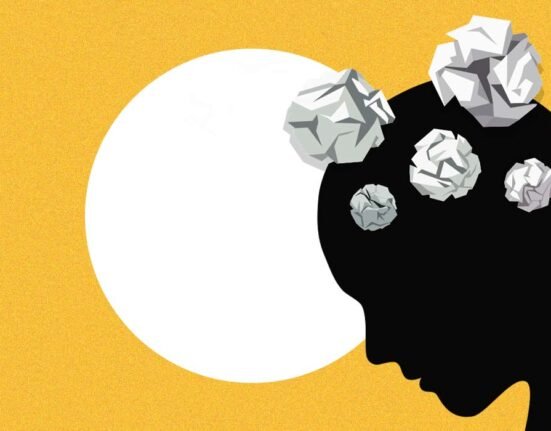NELSON MANDELA once said” There is no passion to be found playing small and settling for life, that’s less than the one you are capable of living.” So, the question arises that why should one settle for something?
As the society is evolving with time, we can see humans running around in search of jobs, a life partner or maybe just running for the sake of good health. Why do we do so? All these are basic human needs.
Generally, there is a very slight difference between NEED and WANT. The line that divides the two is SELF CONTROL. If we have the control to tell our own self that “this is our priority “then the battle of need and want may not arise. In both the cases motivation to achieve that goal is needed.
So, for one to achieve their goals they need a DRIVING FORCE. This force basically acts as a push for one to work towards their goals. The force can be both positive (eg. following an ideal) and negative (eg. if someone says, “you can’t do it “and that statement creates an urge to work towards the goal ).
Motivation is the ultimate force that causes one to take actions. Not only does it initiate a goal oriented behavior, but it also sustains it. The actions can be as simple as, following a healthy diet or as complex as, winning a medal in the Olympics. There are mainly four driving forces behind human motivation. They are biological, emotional, social or personal in nature.
According to psychology, we have the Maslow’s Need Theory or the hierarchy of need, in life. This concept generalizes the needs that humans have and their priorities. The 5 BASIC NEEDS are as follows:
- PHYSIOLOGICAL: This covers the extremely basic yet the most crucial part of living that is FOOD, WATER AND SHELTER. Any person for being stable in their life will start off from this because without fulfilment of these needs survival is difficult.
- SAFETY: Once we start a living with the basic needs, we come to the section wherein we need MONEY to raise the family or our own self. This category basically deals with the SECURITY of the family or the individual in terms of health, financial status or the general stability.
- SOCIAL: Having a good healthy RELATIONSHIP with others in the society is a need for a person to socialize in a society. After a point, public relationships are something in our life that becomes very important. This can be communication within our work place or talking to someone special. As we all know having that someone in your life is very important.
- SELF ESTEEM: When we talk about Self-esteem, it is an individual’s subjective evaluation of their own worth. Self-esteem encompasses beliefs about oneself as well as emotional states, such as triumph, despair, pride, and shame. This category deals with the self-PRESTIGE of the individual in the society.
- SELF ACTUALIZATION: Self–actualized people are aware of their fulfilments and potentialities. Self-actualization, in Maslow’s hierarchy of needs, is the highest level of psychological development where the “actualization” of full personal POTENTIAL is achieved, which occurs only after basic and mental needs have been fulfilled.
To simplify all these needs we can just divide them into 2 sections:
- GROWTH NEEDS: Growth needs do not stem from a lack of something, but rather from a desire to grow as a person. Once these growth needs have been reasonably satisfied, one may be able to reach the highest level called self-actualization (the topmost level in the priority order).
- DEFICIENCY NEEDS: Deficiency needs are basic needs arising from being deprived of something. Example: Physiological, Safety, Social and Self Esteem. According to Maslow’s theory, a person has to fulfil all deficiency needs before they can move on to fulfilling growth needs.
The point which arises now is, if all these needs are fulfilled then the individual is stable, but what if?
- the individual fails?
- he/ she is not able to fulfil one of the needs in the process?
- what if he/ she is good at earning money for their living but not good at relationships with others?
- what if he/she has the full potential to achieve something but does not have the basic needs such as a stable living?
We as humans include all these situations under FAILURES in our life. Life in general, is not a straight path. We have fluctuations going on between the needs and wants. Sometimes we get all we want and sometimes we do not. So, for such a situation, we need to think upon what are we going to do with the things that we have? How can we utilize the given provisions in our life to fulfil the other needs?
The most crucial step to fill the gap between failure and success is TO TAKE RISKS IN LIFE. The fear of failure, should not stop the individual from accomplishing their goals.
If you do not fail, you are not even trying. To get something that you never had, you have to DO SOMETHING YOU NEVER DID. We have to stay strong, believe in our own self and TAKE RISKS.
This entire process of taking risks just reduces the factor of regret in one’s life. By regret I mean, the feeling that anyone would get if they never tried. When the individual starts taking risk in life, they will figure out what they actually know and where are they lagging behind. Success and failure never define a person. It is the way we perceive the situation:
- NEGATIVE: I failed! I can never get what I want.
- POSITIVE: This failure made me come one step closer to my goal.
The above two points, justifies the doubts of many people who think, what about the loss that one has to face after taking risks? Hence, the answer is pretty much clear that, it is actually the way we perceive the end result. The person who takes up the negative way of thinking he/she may not ever try again. Whereas the one who thinks in a positive way may finally reach the goal someday. The characteristic behavioural trait of such people is that they are OPTIMISTIC. They have the urge to accomplish and they will find all ways and means to get there and NEVER GIVE UP.
This opinion of mine is entirely contrary to the concept of Maslow. As he concludes by saying that both needs (growth & deficiency) are needed for one to be stable or successful in life.
Whereas I would say if some basic need is missing in one’s life, even then if he/she has the will power, to achieve their goals then,
To simplify all these needs we can just divide them into 2 sections:
- GROWTH NEEDS: Growth needs do not stem from a lack of something, but rather from a desire to grow as a person. Once these growth needs have been reasonably satisfied, one may be able to reach the highest level called self-actualization (the topmost level in the priority order).
- DEFICIENCY NEEDS: Deficiency needs are basic needs arising from being deprived of something. Example: Physiological, Safety, Social and Self Esteem. According to Maslow’s theory, a person has to fulfil all deficiency needs before they can move on to fulfilling growth needs.
The point which arises now is, if all these needs are fulfilled then the individual is stable, but what if?
- the individual fails?
- he/ she is not able to fulfil one of the needs in the process?
- what if he/ she is good at earning money for their living but not good at relationships with others?
- what if he/she has the full potential to achieve something but does not have the basic needs such as a stable living?
We as humans include all these situations under FAILURES in our life. Life in general, is not a straight path. We have fluctuations going on between the needs and wants. Sometimes we get all we want and sometimes we do not. So, for such a situation, we need to think upon what are we going to do with the things that we have? How can we utilize the given provisions in our life to fulfil the other needs?
The most crucial step to fill the gap between failure and success is TO TAKE RISKS IN LIFE. The fear of failure, should not stop the individual from accomplishing their goals.
If you do not fail, you are not even trying. To get something that you never had, you have to DO SOMETHING YOU NEVER DID. We have to stay strong, believe in our own self and TAKE RISKS.
This entire process of taking risks just reduces the factor of regret in one’s life. By regret I mean, the feeling that anyone would get if they never tried. When the individual starts taking risk in life, they will figure out what they actually know and where are they lagging behind. Success and failure never define a person. It is the way we perceive the situation:
- NEGATIVE: I failed! I can never get what I want.
- POSITIVE: This failure made me come one step closer to my goal.
The above two points, justifies the doubts of many people who think, what about the loss that one has to face after taking risks? Hence, the answer is pretty much clear that, it is actually the way we perceive the end result. The person who takes up the negative way of thinking he/she may not ever try again. Whereas the one who thinks in a positive way may finally reach the goal someday. The characteristic behavioural trait of such people is that they are OPTIMISTIC. They have the urge to accomplish and they will find all ways and means to get there and NEVER GIVE UP.
This opinion of mine is entirely contrary to the concept of Maslow. As he concludes by saying that both needs (growth & deficiency) are needed for one to be stable or successful in life.
Whereas I would say if some basic need is missing in one’s life, even then if he/she has the will power, to achieve their goals then,
END.












Leave feedback about this